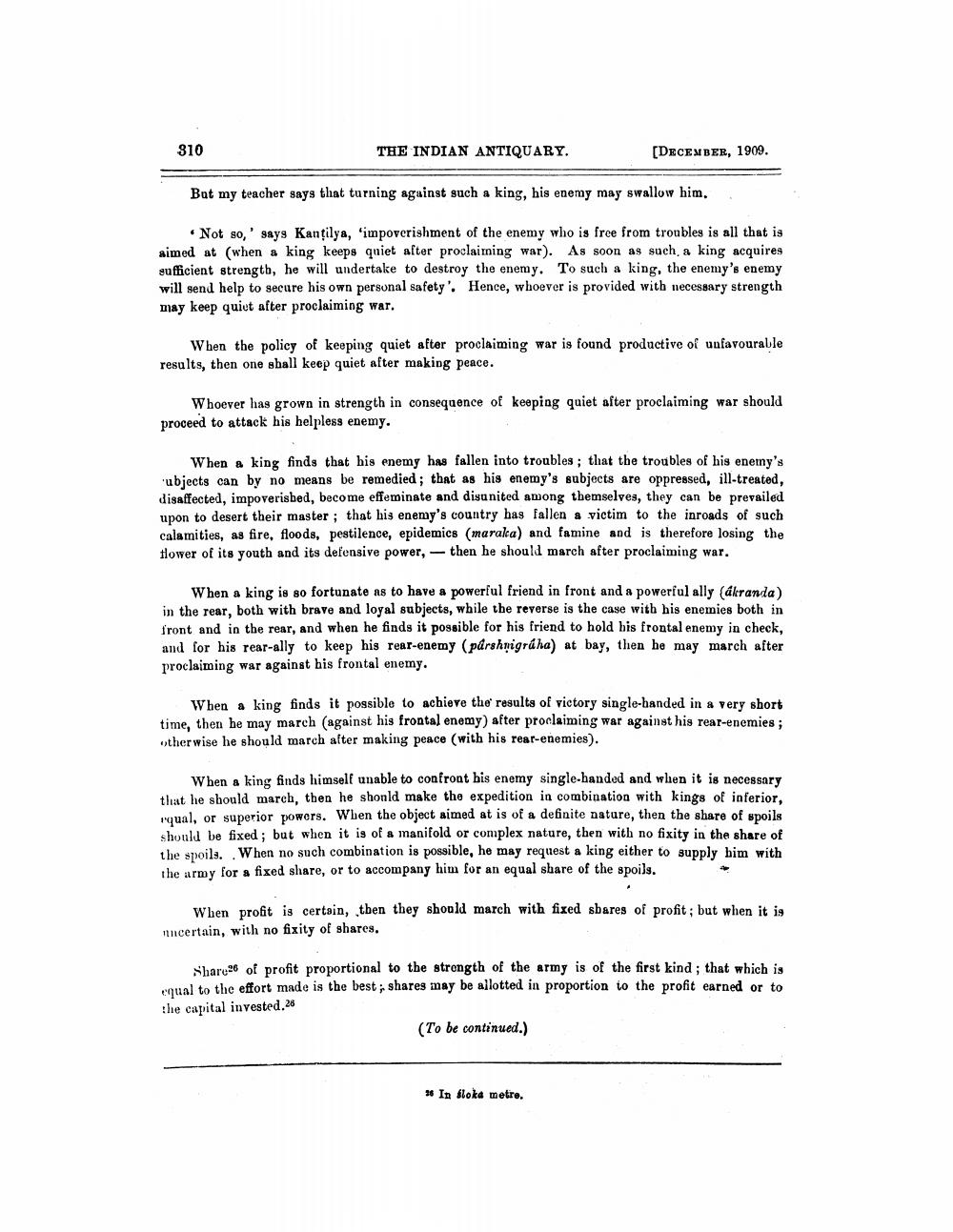________________
310
THE INDIAN ANTIQUARY.
[DECEMBER, 1909.
But my teacher says that turning against such a king, his enemy may swallow him,
Not so,' says Kanţilya, 'impoverishment of the enemy who is free from troubles is all that is aimed at (when a king keeps quiet after proclaiming war). As soon as such, a king acquires sufficient strength, he will undertake to destroy the enemy. To such a king, the enemy's enemy will send help to secure his own personal safety'. Hence, whoever is provided with necessary strength may keep quiet after proclaiming war.
When the policy of keeping quiet after proclaiming war is found productive of unfavourable results, then one shall keep quiet after making peace.
Whoever has grown in strength in consequence of keeping quiet after proclaiming war should proceed to attack his helpless enemy.
When a king finds that his enemy has fallen into troubles ; that the troubles of his enemy's ubjects can by no means be remedied; that as his enemy's subjects are oppressed, ill-treated, disaffected, impoverisbed, become effeminate and disunited among themselves, they can be prevailed upon to desert their master ; that his enemy's country has fallen a victim to the inroads of such calamities, as fire, floods, pestilence, epidemics (maraka) and famine and is therefore losing the Hower of its youth and its defensive power, - then he should march after proclaiming war.
When a king is so fortunate as to have a powerful friend in front and a powerful ally (akranda) in the rear, both with brave and loyal subjects, while the reverse is the case with his enemics both in front and in the rear, and when he finds it possible for his friend to hold bis frontal enemy in check, and for his rear-ally to keep his rear-enemy (pârshnigrúha) at bay, then he may march after proclaiming war against his frontal enemy.
When a king finds it possible to achieve the results of victory single-banded in a very short time, then be may march (against his frontal enemy) after proclaiming war against his rear-enemies; otherwise he should march after making peace (with his rear-enemies).
When a king finds himself unable to confront his enemy single-handed and when it is necessary that he should march, then he shonld make the expedition in combination with kings of inferior,
qual, or superior powers. When the object aimed at is of a definite nature, then the share of spoils should be fixed; but when it is of a manifold or complex nature, then with no fixity in the share of the spoils. When no such combination is possible, he may request a king either to supply him with the army for a fixed share, or to accompany him for an equal share of the spoils.
When profit is certain, then they should march with fixed shares of profit; but when it is incertain, with no fixity of shares.
Sharo% of profit proportional to the strength of the army is of the first kind ; that which is equal to the effort made is the best ; shares may be allotted in proportion to the profit earned or to the capital invested.26
(To be continued.)
* In Sloka metre.




